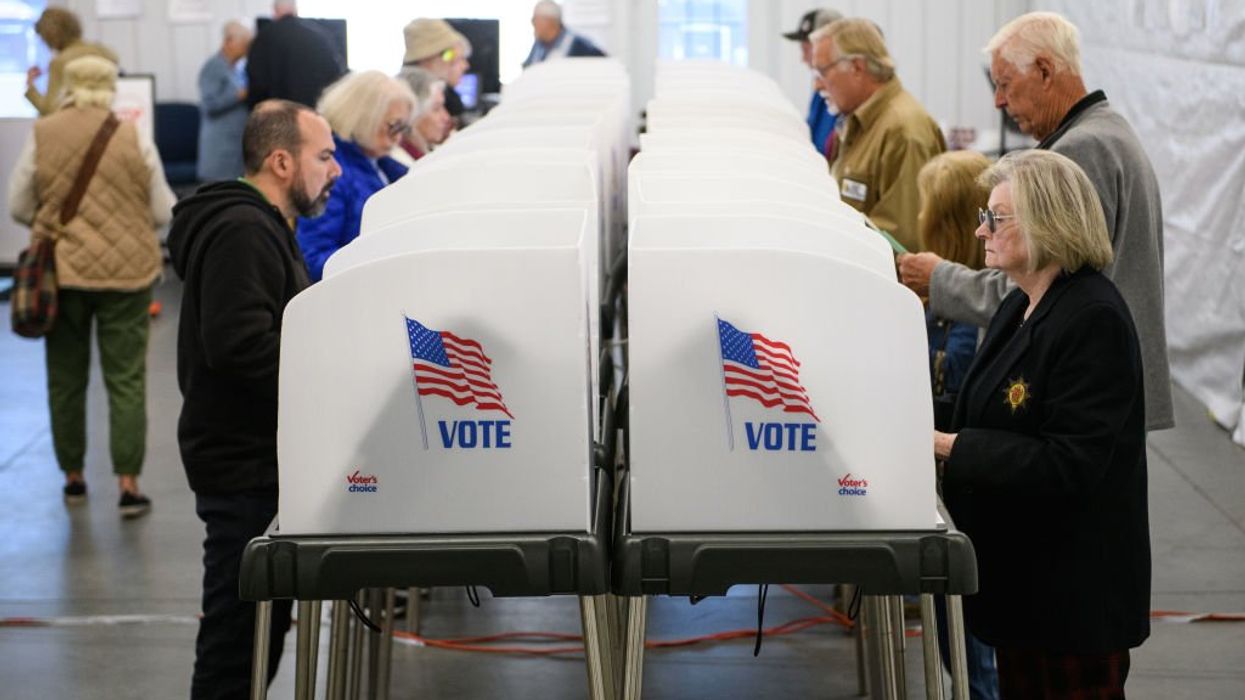During yesterday's radio broadcast, Glenn said "we have built a society that doesn't connect" even though we have more "digital connection"—and now this disconnection is affecting our marriages. Nearly 4 million married Americans live alone, according to U.S. Census data. Often called "living apart together" or "LAT," this movement is motivated by couples who want to preserve a similar sense of "self" and "independence" as when they were single while also experiencing the benefits of marriage—and it's growing in popularity.
LAT is motivated by couples who want to preserve a similar sense of "self" and "independence."
LAT relationships have skyrocketed more than 25 percent between 2001-2019 and was expedited by the pandemic—and people swear by it. Goop founder and actress Gweneth Paltrow who says, "All my married friends say that the way we live sounds ideal and we shouldn't change a thing," when describing her LAT relationship with husband Brad Falchuk. Is the situation as ideal as Paltrow makes it out to be? Mainstream liberal media certainly thinks so.
The New York Times published a piece featuring several women who chose LAT to avoid the potential responsibility of becoming a caregiver to their partner as they progress in age. The article quoted Ingrid Arnet Connidis, an emerita sociology professor at Western University in London, Ontario, who said, “A big attraction of LAT is to avoid the potential responsibility of being a full-time caregiver. Women cared for their children, parents and spouse, and want to avoid getting into these traditional gender roles.”
The article also featured Allison Forti, a counseling professor at Wake Forest University, who said, “I think it’s important for women to know it is OK to not want to serve as a caregiver and to still hold value as women in society,” and that full-time caregiving “takes a significant physical and emotional toll on someone."
But this trend isn't only popular among older married couples.
Brides.com featured a piece encouraging LAT as a viable option for couples seeking to retain the sense of "self-care," "independence," and "lifestyle" from when they were single while also participating in the benefits of marriage. The article quotes Beverly Hills "relationship expert" Sherrie Sims Allen, who said LAT is a viable option for singles who want to connect to their partners in a way "that won’t cost them their preferred lifestyle or way of life." Sims Allen went on to say LAT couples "focus on what they enjoy about each other and don’t spend a lot of time fretting about the small stuff.”
...the small stuff like building a life together??
LAT "made caring for myself, and really putting my own pleasure and my needs first so much easier."
Another New York Times article argued that LAT could help make nontraditional and same-sex relationships “more socially acceptable.” The piece highlighted how queer couple Ev’Yan Whitney and Jonathan Mead's LAT relationship "helped challenge heteronormative scripts." According to Mx. Whitney, who doesn't identify as a "Mrs. or Mr.," LAT "made caring for myself, and really putting my own pleasure and my needs first so much easier."
The piece also featured several women in "heteronormative" relationships, like Connie Ordway, who was married to her husband Jeff for 18 years before she got her own place. Ordway said, "I am a mother. I am a wife. I am a farmer. I don’t know where I fit. Remember who I am by myself, remember what I like doing by myself. And that was a lovely gift."
Do you see the common theme running through all these stories? The breakdown of marriage is a direct result of people prioritizing "self-care" over "self-sacrifice."
As Glenn said in his radio show yesterday, our self-driven culture is disastrously impacting our mental health, making us more disconnected and lonely than ever. Is it any surprise this same culture is wreaking havoc on our marriages as well? Marriage stands in stark contrast to our culture's platitudes of "prioritizing yourself" and not compromising on the things you want. Marriage requires the reciprocal self-sacrifice for the sake of a spouse's happiness and vice versa.
If our "self-care" culture is all it's touted up to be, shouldn't we expect to see an increase in overall happiness as marriage rates continue to plummet? But we are seeing the exact opposite—people are unhappier than ever. As Glenn noted, suicide rates in the US are up 30 percent overall across the U.S. Something is deeply wrong.
It is no surprise that "self-care" culture is wreaking havoc on our marriages.
Could it be that true happiness comes with the service of others rather than ourselves? Could it be that our "self-care" culture is the root of our overall unhappiness? LAT marriage is just one more example of this "me-first" thinking, and if it follows the precedent set forth by other movements within "self-care" culture, it is setting people up for a life void of happiness and fulfillment.

















